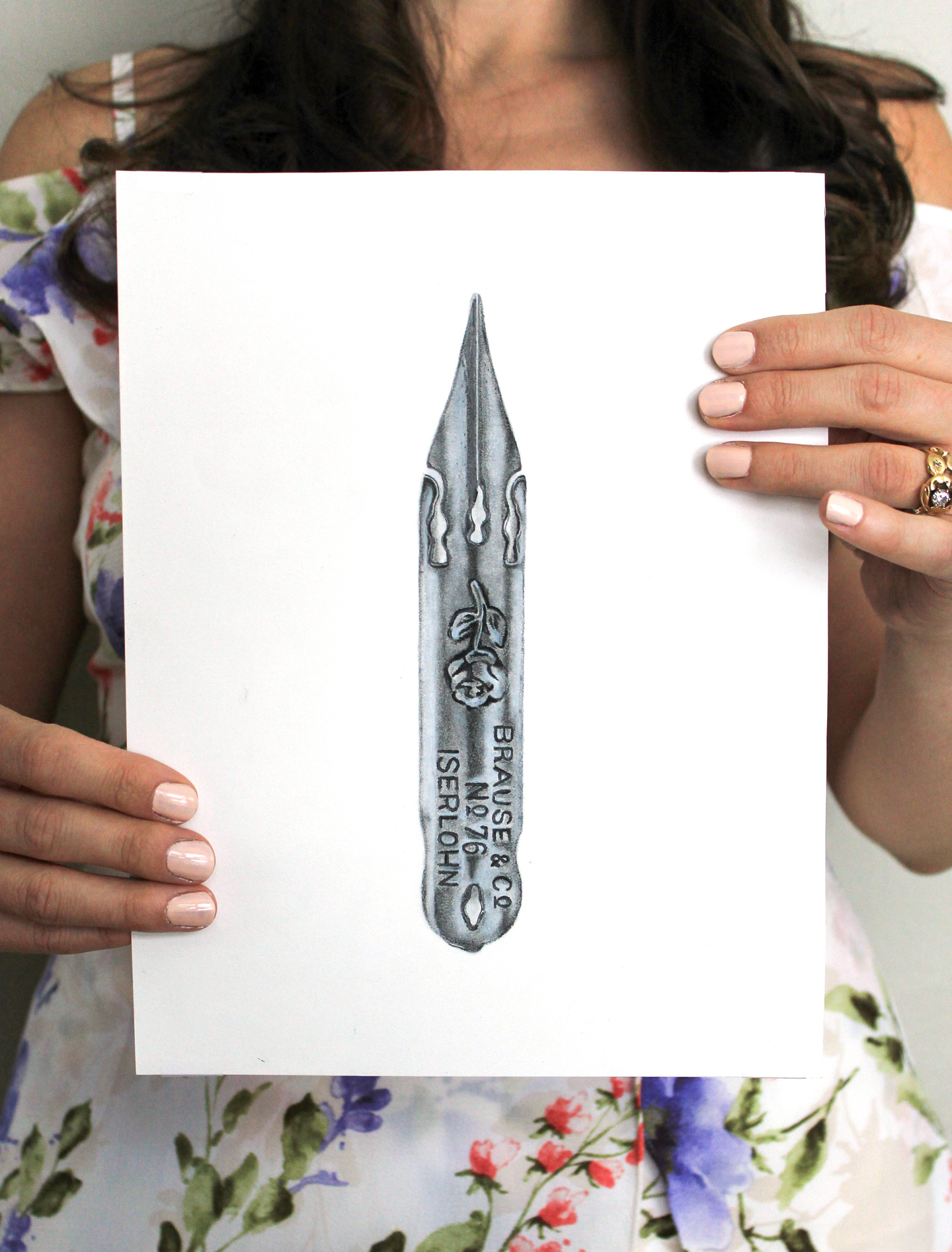
I am writing to you from Kansas this weekend, where we’ve come to stay the weekend with my family. Being in {rural} Kansas is a nice respite for us because here, time stops. You could be in 1950 … or you could be in 2014. Whatever year it is, the part of Kansas that I am from embraces the simple life. This tree art tutorial reflects that; it doesn’t require a lot of time, energy, or exertion of talents — but it’s still fun and renders beautiful, zen-like results. If you have kids, it’s a great project to do with them; but it’s equally fun to do on your own to create wall art for your home or add visual interest to your sketchbook. Did I mention it’s easy?
These are all the supplies you’ll need:

The spoon is optional, really, but I like to use it to scoop water into my watercolor pails. You could use liquid watercolors for this tutorial, as well. Don’t have watercolors? You can get a decent set for under $5.00 at any general store. If you like quality, order some Winsor & Newtons … they’re my favorite, and what I use! The paper I used is watercolor paper; I cut it to 4″x6″. Watercolor paper will work best for this project because of its low absorbency, but you can apply the techniques outlined below on any paper, really.
To get started, trickle a little bit of water into your brown, green, and blue cartridges to get them to soften up.

I find that softening the watercolors from the get-go gives them more concentrated color.
Next, use your brush to make a big blob of color in the corner of your paper.

Grab your straw, and blow on that blob to make the watercolor run across the page.

Add more, mini blobs to the path that your initial watercolor “run” made.

To give the brown watercolor an interesting pattern, I experimented with blowing the watercolor around using a circular motion. It worked really well to randomly disperse the color! Blow through the straw while using your hand to move it, like this:

In a matter of seconds, your “branches” are done!

Now, grab your brush and start painting green ovals to represent leaves.

The only “rule” here is to ensure that your leaves touch a branch, since in nature leaves grow from branches.



If I weren’t taking photos while making these leaves, it would have taken me about four minutes.

You could call it “good” here; but I wanted to add some birds to my art — because who doesn’t love a nice little bluebird here and there? They’re really easy to paint. Just draw a circle for the body:

Fill it in with some water {the paint on the edges will blend to make the inside of the circle look blue}:

Paint a little “tail” under the branch; it’s basically the shape of a skewed rectangle:

Draw a smaller circle on top of the larger circle for the head:

{Be sure you leave a chink out of the circle so you can add in a tiny yellow dot for the beak.}

Once the paint has dried a bit {~2 minutes}, paint in the beak. Just a drop of yellow will do.

And, hey, why not add in a little friend for him?

The bluebird party isn’t complete without someone flying in. To draw a flying bird, start with a little circle for the head:

Then add in a big circle for the body:

Draw a wing {roughly a triangle shape}:

And another wing:

Then, make his {or “her”} tail:

Throw a couple more birds in here and there, and boom!

I want to give a shout-out to Meredith for inspiring this tree art project! She suggested using a straw/concentrated air technique to make branches for abstract cherry blossoms. That was my original plan, but I couldn’t resist turning my branches into lush foliage. If you do use this technique to make cherry blossoms or regular leaves, please share how it turns out on Instagram or Facebook!
This tree art project is probably the easiest one on my blog — even less time-consuming than the spatter watercolor tree tutorial. If you’ve got ten minutes to spare this weekend, why not embrace a little bit of the easy Kansas lifestyle and create some simple, natural art? I think you’ll be surprised at how much you enjoy it!
Until next time!
XO,





























